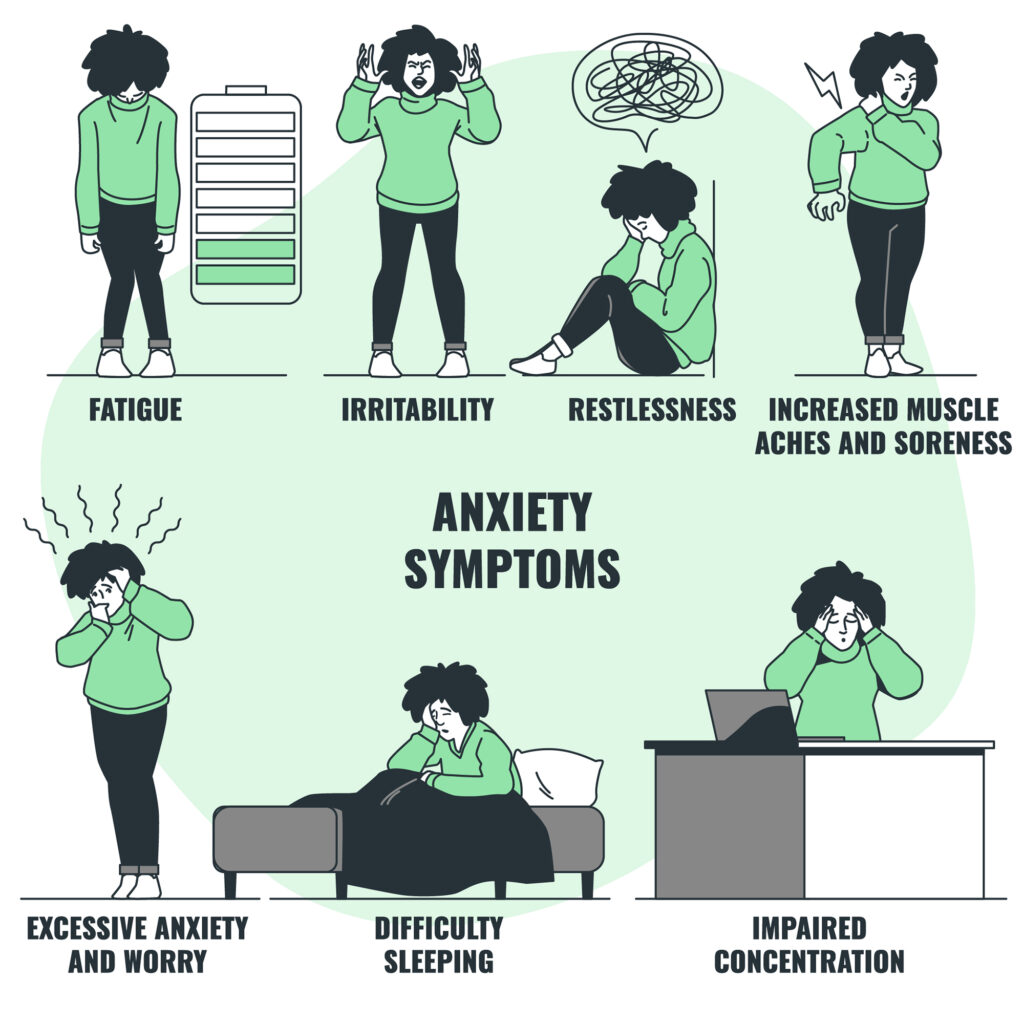Treatments Mental Disorders Anxiety Disorder

Understanding Anxiety Disorders: Breaking Free from the Chains of Worry
Anxiety disorders encompass a group of mental health conditions characterized by excessive and persistent worry, fear, and unease. Some common types of anxiety disorders include generalized anxiety disorder (GAD), panic disorder, social anxiety disorder, specific phobias, and post-traumatic stress disorder (PTSD).
Anxiety disorders affect millions of people worldwide, casting a shadow over their daily lives and hindering their ability to find peace and fulfilment. While occasional feelings of anxiety are a normal part of life, anxiety disorders go beyond temporary worry and apprehension, persistently interfering with one’s well-being. In this article, we will explore the world of anxiety disorders, shedding light on their causes, symptoms, and available treatments to help individuals better understand and manage these conditions.
Defining Anxiety Disorders:
Anxiety disorders encompass a group of mental health conditions characterized by excessive and persistent worry, fear, and unease. Some common types of anxiety disorders include generalized anxiety disorder (GAD), panic disorder, social anxiety disorder, specific phobias, and post-traumatic stress disorder (PTSD). These disorders can manifest in various ways, such as physical symptoms, cognitive disturbances, and behavioural changes, making them highly debilitating for those affected.
Causes and Triggers:
Anxiety disorders are complex conditions with multifaceted causes. While each person’s experience is unique, several factors contribute to the development of these disorders. These can include:
Recognizing Symptoms:
Anxiety disorders manifest in a wide range of symptoms that can vary from person to person. Some common signs to watch out for include:
Treatment Approaches:
Conventional medicine offers several treatment options for anxiety disorders, including psychotherapy and medication. Psychotherapy, such as cognitive-behavioral therapy (CBT), can be highly effective in helping individuals understand and manage their anxiety. Medications like selective serotonin reuptake inhibitors (SSRIs) and benzodiazepines are commonly prescribed to alleviate symptoms, but they may come with side effects and the potential for dependency.
The Role of Homeopathy in Anxiety Management:
Homeopathy, a system of alternative medicine, takes a holistic approach to healing by addressing the root cause of an individual’s symptoms. Homeopathic remedies are derived from natural substances and are prescribed based on the concept of “like cures like.” Homeopathic practitioners aim to stimulate the body’s innate healing abilities and restore balance on physical, mental, and emotional levels.
In homeopathy, each person’s experience with anxiety is considered unique. At Dr. Singh’s Homeopathy we assess the individual’s specific symptoms, triggers, and overall constitution to determine an appropriate remedy.
Self-Care Practices:
In addition to professional help, self-care practices can play a vital role in managing anxiety disorders. Here are some self-care strategies to consider:
Conclusion:
Anxiety disorders can be challenging to manage, but with a holistic approach, individuals can find relief and regain control of their lives. Dr. Singh’s Homeopathy offers a complementary option that considers the individual’s unique symptoms and aims to restore balance on multiple levels. When combined with lifestyle modifications and self-care practices, homeopathy can be a valuable tool in the journey toward anxiety management and overall well-being. As always, if you or your known is suffering from anxiety; feel free to consult Dr. Singh’s Homeopathy for personalized guidance and treatment.

